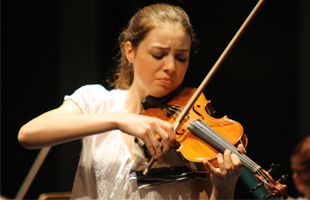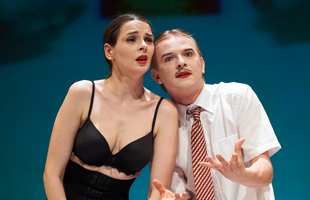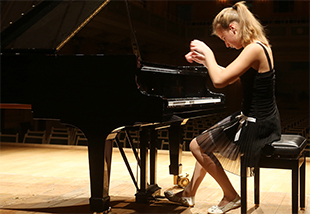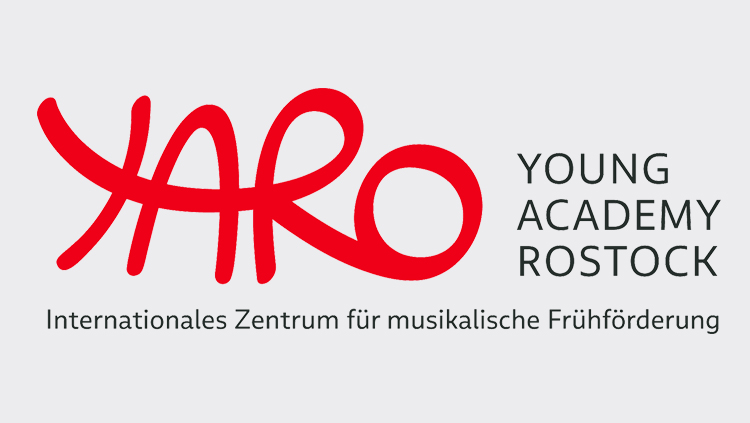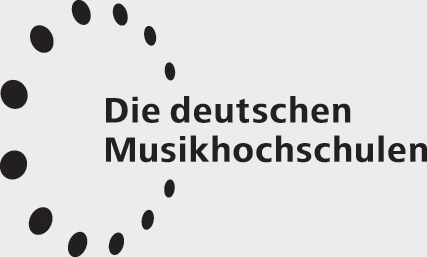Bachelor's Course Composition
Entrance Requirements
Applicants who wish to enrol at the University of Music and Drama have to provide proof of entitlement (normally: “Abitur” – general/specialized higher education entrance qualification or foreign equivalent). As an exception for music studies and on request, this document might be complemented or replaced by a certificate verifying the passed entrance examination to the Hochschule für Musik und Theater Rostock. Applicants also need to have completed their compulsory education or will presumably have done so before they start their studies
Course Profile
- Official Length of the programme: four years, 240 ECTS-credits
- Start of the course: winter semester as well as summer semester
- Application period: 1 October to 15 November for the summer semester. 1 March to 15 April for the winter semester.
- University Degree: Bachelor of Music
- Teachers
Programme Details
The Major Specialism modules (“Künstlerisches Kernmodul” and “Obligatorische Vertiefung Kernmodul”, semesters 1 – 8) provide the core of the Bachelor’s course. Here, the main subject is connected with analysis and instrumentation. Electronic Music and Computer Notation complete the module during the second half of the study.
During the basic module Theory and History I (“Theorie und Geschichte I” semesters 1 – 4) and follow-up module Theory and History II (“Theorie und Geschichte II”; semesters 5 – 8), students gain comprehensive knowledge in the fields of Classical Arrangement and Aural Techniques, Arrangement Techniques of the 20th and 21st century, Aural Analysis, Score and Instrument Studies/Acoustics, Notation Techniques, Musical History, Musicology, and Musical philosophy/Musical Aesthetics. A lecture about the History of Contemporary Music completes the module. With the aforementioned fields of study, this module forms competence in theory, science, and methods and thus functions as the most important supplement of the Major Specialism modules.
The main instrumental or vocal subject forms the centre of the Musical Practice module (“Musikalische Praxis I”, semesters
1 – 4) and the follow-up module Musical Practice II (“Musikalische Praxis II”, semesters 5 – 6) where students develop their artistic skills. During their lessons in their first and secondary instrumental study and in percussion, they get acquainted with playing techniques and specialties of these instruments; vocal lessons provide an introduction of vocal techniques. Choir singing, Basso Continuo, Sight-reading and Score Playing complete the module. The leading of an orchestra/choir/ensemble as well as Improvisation Techniques will also be studied.
The Bachelor’s course in composition provides a basis to successfully carry out professional work as a composer on the “open market”. Those students who stand out through artistic excellence might either pursue their studies and apply for a Master’s course or start their career immediately. Career opportunities will usually be discussed with the principal instructor who will give appropriate advice.
Foreign students whose native language is not German must provide evidence that their knowledge of German is sufficient for their chosen course.
For the Bachelor’s degree (Composition), students are required to have reached level B2 as defined by the Common European Framework of Reference for Languages.
Applicants’ linguistic competence will be established during the aptitude test.
You will find further information in the Aptitude Test Regulations and Matriculation Regulations (only in German) of Rostock University of Music and Drama.
Please apply via our application website by uploading the required documents and compositions by 15th of April for the next winter semester and 15th of November for the next summer semester. If you need to send your composition works in paper via mail, they need to be at the hmt one week after the application deadline.
Round 1:
Please submit
own compositions (minimum 3, maximum 6) with varying nstrumentations
Round 2:You will receive an e-mail with the results of part 1 of the aptitude test. If you have passed part 1 of the aptitude test, you will be invited to part 2 which will take place in June for the winter semester and in January for the summer semester. The exact dates will be published under apply for studies.
Applicants for the Bachelor’s course in composition are required to
- sit a 20-minute oral examination explaining your own compositions and analytic details. You may also talk about works in progress which you have not submitted in the 1st round. Furthermore, you have to describe compositional processes using scores from various eras which will be preesented to you during the exam.
- sit a three-hour music theory examination comprising:
a) Two-voice counterpoint in a uniform style
b) Four-voice song setting in a uniform style
c) Analysis of given musical excerpts, including a piece of contemporary music composed after 1950 - sit a practical/oral music theory examination comprising:
d) Unprepared analysis of several musical excerpts
e) Performance of a cadenza at sight following a prescribed form
f) Performance of a modulatory task with prior oral explanation of the path taken
g) Performance of a given figured bass - sit a 90-minute aural training examination comprising:
h) Taking down dictation of a rhythmically complex single line of music using a sequence of notes dictated slowly in advance
i) Taking down dictation of single melodic line
j) Taking down dictation of a polyphonic work for three voices
k) Taking down dictation of a homophonic work for four voices - sit a 30-minute oral/practical aural training examination comprising:
l) Recognition and singing intervals and chords
m) Sight-singing
n) Tapping rhythms
o) Listening to a cadenza sequence - demonstrate advanced intermediate skills and knowledge in the chosen main instrumental (or vocal) subject during a 10-minute practical examination
p) by performing two works of intermediate difficulty from different eras
q) sight-reading an easy work
Parts e) to g) will be examined at the piano.
You will also have to take tests in your respective compulsory subject (Piano). Additionally, foreign students have to pass a German proficiency test.
We look forward to your application.
Application
Click here for the ONLINE APPLICATION and the dates of the APTITUDE TEST.
A fee of 50 Euro is charged for processing your application for admission. Please transfer this amount when you submit your application.
We will gladly advise you personally!
Mrs Dörtje Peters
Study Office for Music
fon +49 381 5108 220
fax +49 381 5108 201
doertje.peters@hmt-rostock.de
Prof. Peter Manfred Wolf, Head of Composition
petermanfred.wolfhmt-rostockde
Please visit our University Information Day in April!
Back to DEGREE COURSES

